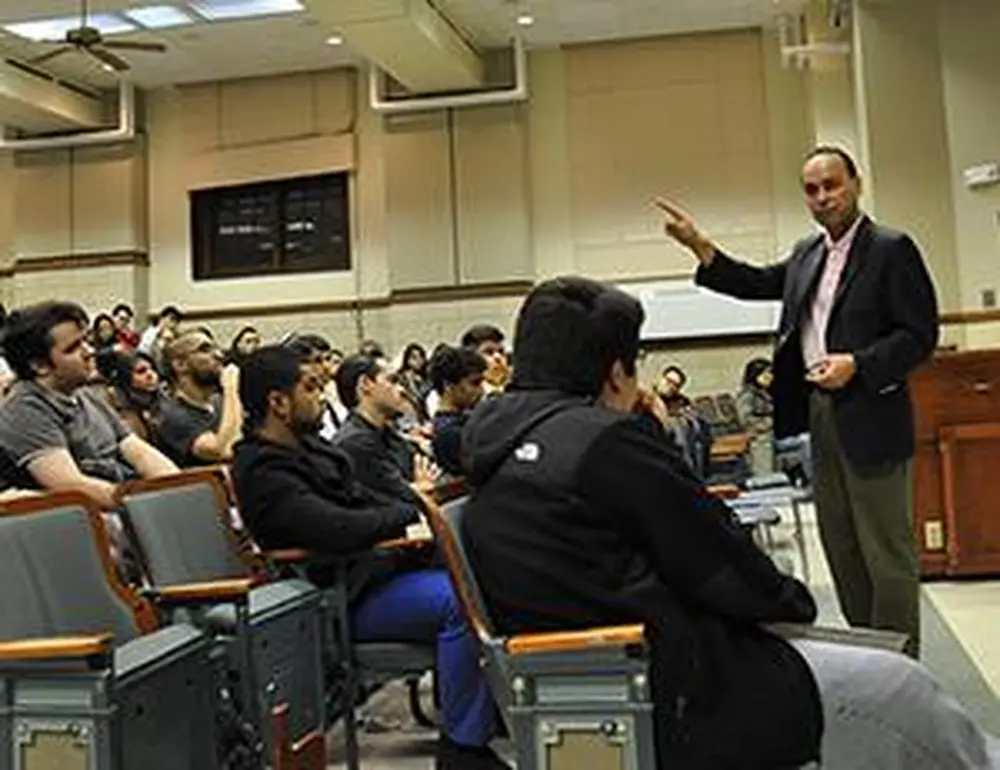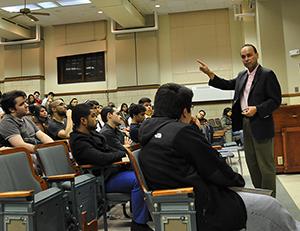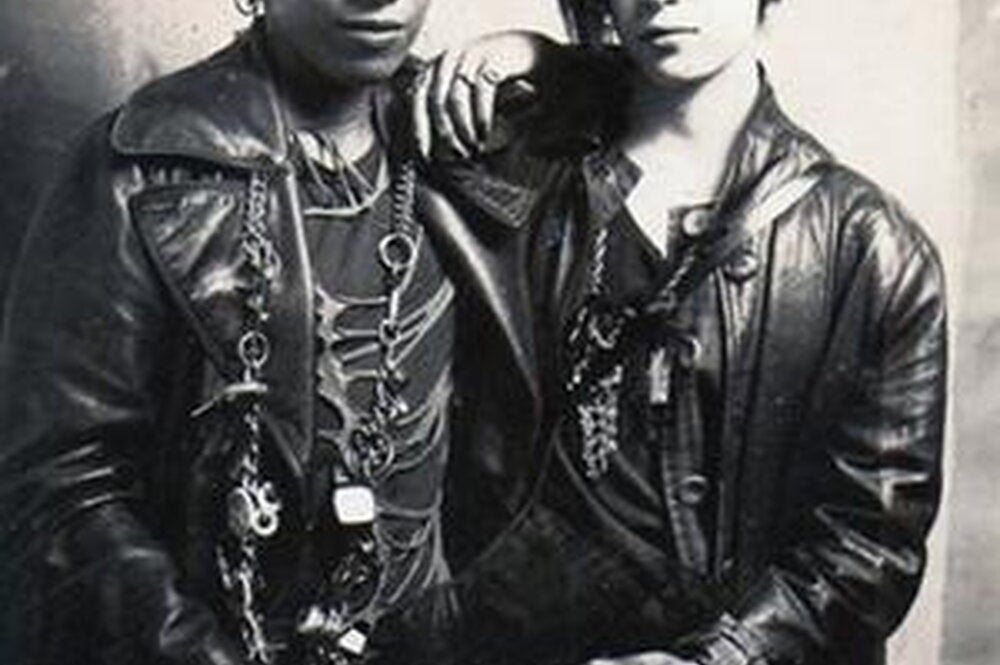

Certain scenes from his childhood, from the sugar fields of Puerto Rico to the streets of Chicago, have always remained in the mind of Luis Gutierrez during his career as a U.S. legislator. One memory is from San Sebastian, where he would see lines of “cutters”—those who harvested the sugar cane with machetes—with their scars and leather-like, sun-dried skin, waiting patiently and respectfully for their weekly pay of just $30 or $40.
“The Puerto Rican men waiting in line made me think of the taunts thrown at me and my friends back in Chicago,” Gutierrez told U of I students recently, during a speech at a packed auditorium in Gregory Hall. “It was a common thing for me to hear. ‘Lazy Puerto Ricans.’ ... Most of the Puerto Ricans I knew [in Chicago] took long bus rides to work. They worked in assembly lines and factories, and stacked things in warehouses and drove cabs.”
The discrepancy between his experience and the taunts he heard growing up as the son of Puerto Rican parents has fueled Gutierrez’s long fight for immigration reform in the U.S. House of Representatives, where he is currently serving his 11th term. It also made him an ideal guest for the Department of Latina/Latino Studies, who hosted him during his recent visit to campus and has devoted many resources to better understanding immigration.
Gutierrez, a Democrat from Illinois’s Fourth District who was born in Chicago, is known as a passionate speaker and one of his party’s leading figures on immigration issues. He shared with students his own background along with some details of his dealings with President Barack Obama, with whom he described a collaborative yet sometimes contentious relationship on the subject of immigration reform.
The congressman is known for fighting for expanded citizenship and English proficiency programs for newly arrived immigrants, and for his leadership in guiding the Development Relief and Education for Alien Minors (DREAM) Act to passage in the House of Representatives in 2010 (the bill was filibustered in the U.S. Senate). Gutierrez says comprehensive immigration reform is a “number one” priority for this term, and he recalled President Obama chiding him for his not-so-subtle complaints that immigration reform wasn’t moving faster after the 2008 elections.
“At immigration, I was never subtle with him,” Gutierrez told the crowd in Gregory Hall. “I’m not concerned that the president of the United States might be mad at me. I’m amazed that I’m in a position where I can make the president of the United States mad at all. After all, I’m a Puerto Rican son of a cab driver and a factory worker. A kid who chopped pig innards and swept the floor of an unsuccessful restaurant. A guy who had to drive a cab on the night shift to make ends meet. But somehow 40 years after my dad packed us up and took us on the road, I ended up across the table from the president of the United States negotiating.”
Professor Jonathan Inda, chair of the Department of Latina/Latino Studies, says that immigration is a core intellectual issue in the department, with faculty particularly concerned with examining anti-immigrant sentiment in the United States. Restrictive immigration laws, enhanced border policing, workplace raids, detention and deportation, and increasing policing at state and local levels reflect an increasingly anti-immigrant climate, Inda says.
Several classes offered through the department focus on immigration issues, and faculty have published numerous books and articles addressing immigrant life, including health, social and cultural issues, legal aspects, border policing, politics, and other topics, including how immigration was affected by 9/11 and the war on terrorism.
Inda says that in many ways, Gutierrez is an inspiration for those who are concerned about the lives of immigrants in America today.
“Congressman Luis Gutierrez was a very important speaker for the department,” Inda says. “As the anti-immigrant climate has intensified in the U.S., [he] has spoken out against policies that criminalize immigrants, break families apart, and erode respect for civil and social rights. He has also been a leader in the effort to develop and pass comprehensive immigration reform that includes the possibility of legalization for undocumented immigrants.”
Note: This story has been modified from its original version to correctly reflect the citizenship status of Puerto Ricans.


